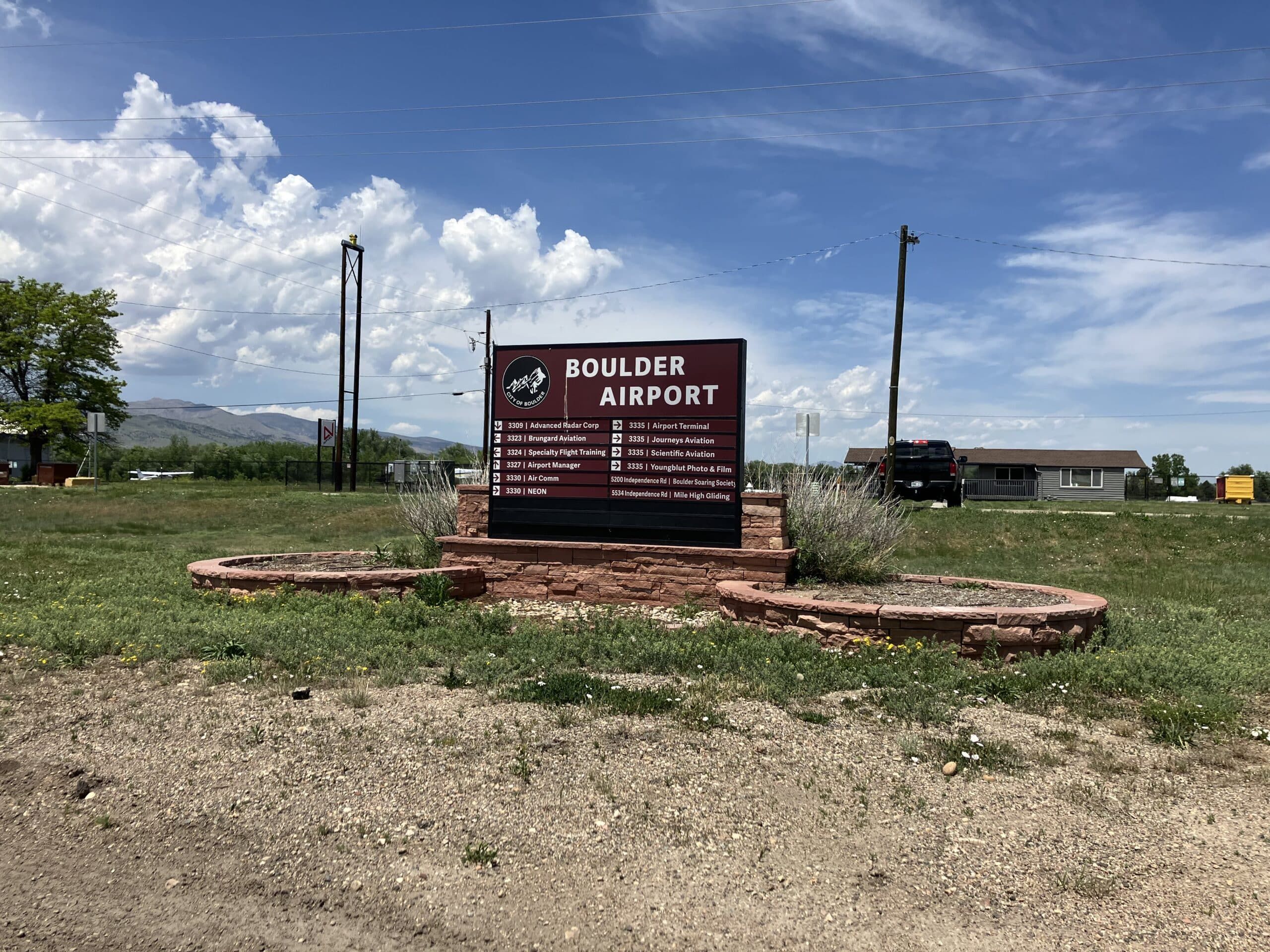Boulder leaders may not alter airport ballot language

BOULDER — A straw poll taken during Thursday night’s Boulder City Council meeting indicated that city leaders may not want to alter the language of a pair of ballot measures related to the possible decommissioning of the Boulder Municipal Airport that are set to go before voters in November.
This summer a pair of separate but complementary petitions — Repurpose Our Runways and Runways to Neighborhoods — received enough signatures to appear on the November ballot.
In recent weeks, city staff and leaders of the Airport Neighborhood Campaign, which organized the successful petition drive, negotiated slight tweaks of the language of those ballot measures. Boulder City Council has the option to accept those alterations or put the measures on the ballot unchanged. Six of the nine council members voted in a straw poll Thursday for the latter option.
SPONSORED CONTENT
A hearing on the matter, which was set to be followed by a vote, was continued on Thursday until a meeting scheduled for Sept. 5.
If passed by voters, Repurpose Our Runways and Runways to Neighborhoods, in essence, would require that Boulder Municipal Airport, or BDU, begin closure in 2041, when the city’s obligations to the Federal Aviation Administration expire. Once decommissioned, the measures would require that airport land be used for new residential units, 50% of which would be designated as below-market affordable housing.
The negotiated ballot language alterations — which if approved by Boulder officials next month would “become council-initiated ballot measures” rather than citizen-initiated measures — were designed to make implementation and administration of the measures slightly more flexible, Boulder deputy city attorney Erin Poe said.
“The requirement of at least 50% affordable housing is changed to a ‘fundamental desired outcome,’” rather than a concrete mandate, she said.
Additionally, a new subsection was added to spell out the intent to “repurpose the site to service housing needs as identified at the time of redevelopment.” That subsection also allows that “future community needs can be addressed by another ballot measure,” Poe said.
Laura Kaplan, a lead organizer of the Airport Neighborhood Campaign and a member of Boulder’s Planning Board, said that “with time and perspective and additional conversations, sometimes a good thing can be further improved.”
ANC is “happy to support the alternate measure if that is the will” of Boulder City Council, she said.
Several members of Boulder City Council emphasized on Thursday that regardless of which route they ultimately choose — moving forward with the original ballot measure language or opting for the altered version — the body is not necessarily endorsing the decommissioning plan. Rather, the board is merely following the established process to allow voters to decide the fate of BDU in November.
The idea of closing the airport, which is tucked away on about 180 city-owned acres between neighborhoods and business parks in east Boulder, has proved controversial, as housing advocates argue that move would offer a once-in-a-lifetime opportunity to provide below-market housing that’s accessible to the type of middle-class worker who can’t afford a million-dollar-plus home and doesn’t qualify for traditional subsidized housing, while airport supporters say a closure would be shortsighted and would result in a costly legal battle with the federal government.
That legal fight has already begun. In late July, the city sued the FAA, which has indicated to city staff and officials that it will not support any decommission plan at BDU.
“In August 2023, representatives of the City met with the FAA to discuss, among other things, the City’s desire to close and repurpose the Airport,” Boulder’s lawsuit said. “The FAA indicated that it would not be willing to release the City from its grant assurance obligations and asserted that such grant assurance obligations would apply in perpetuity.”
The position of the Federal Aviation Administration, which provided the city with grant funds in 1959, 1963 and 1977 to purchase a total of about 44 acres on the airport site, is that the acceptance of such grants require the city to continue operating the airport indefinitely.
The city acknowledges that certain FAA grants come with a 20-year commitment to continue airport operations. In preparation for a decision on whether to decommission the Boulder Municipal Airport, the city stopped accepting federal grants in 2021. That means, Boulder’s lawsuit claims, that the city should be free to close the airport in 2041.
Aviation and business groups, including the Boulder Chamber, oppose decommissioning BDU.
“The potential morass that the complications associated with this citizen-initiated initiative can create for our community could lead to, as we’ve seen already, endless lawsuits and complications in administration,” Boulder Chamber CEO John Tayer told BizWest on Friday. “That is another reason why we are opposed to this ballot initiative and hope that the voters ultimately agree with us on that position.”
Opponents of decommissioning also argue that mandating that the airport site be used for a specific purpose — in this case housing — bypasses Boulder’s traditional land-use review and approvals process.
“The debate that City Council had last night is symptomatic of the challenges that you have when citizen-initiated actions on matters of land use administration that are better handled through staff analysis and thoughtful consideration by our elected leadership,” Tayer said.
A straw poll taken during Thursday night’s Boulder City Council meeting indicated that city leaders may not want to alter the language of a pair of ballot measures related to the possible decommissioning of the Boulder Municipal Airport that are set to go before voters in November.
THIS ARTICLE IS FOR SUBSCRIBERS ONLY
Continue reading for less than $3 per week!
Get a month of award-winning local business news, trends and insights
Access award-winning content today!

